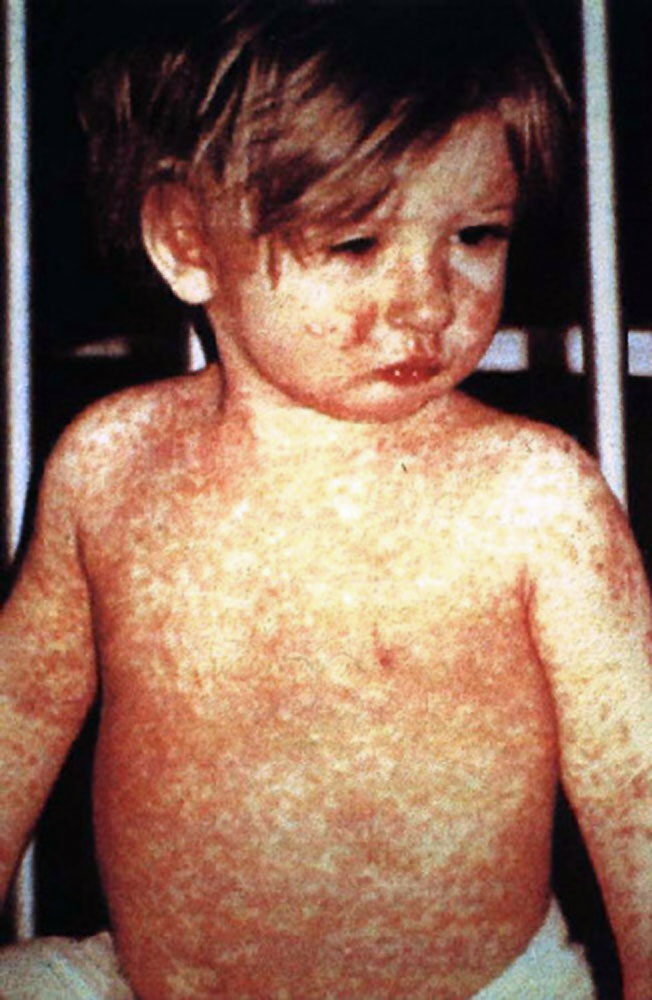Measles Vaccination for Adults: Expert Insights and Recommendations

In light of recent measles outbreaks across various regions of the United States, health experts are weighing in on the necessity of adult measles vaccinations. While the Centers for Disease Control and Prevention (CDC) recommends two doses of the measles, mumps, and rubella (MMR) vaccine for children, the discussion surrounding whether adults should update their vaccinations has garnered significant attention.
According to Dr. William Schaffner, a Professor of Medicine in the Division of Infectious Diseases at Vanderbilt University, most healthy adults who have adhered to vaccination guidelines during childhood do not require additional doses. In an interview dated June 17, 2025, Schaffner stated, "A complete two-dose measles vaccination provides 97% protection for a lifetime. Measles infections that occur despite having received two doses of vaccine are unusual and, when they occur, usually are rather mild." This assertion is backed by extensive studies and historical vaccination data, underscoring the vaccine's effectiveness.
The CDC's current guidelines stipulate that children should receive their first dose of the MMR vaccine between the ages of 12-15 months and a second dose at 4-6 years. For young adults, particularly those attending colleges or other post-high school institutions, the CDC recommends two doses of the MMR vaccine if they lack documented immunity. High-risk adults, such as healthcare workers or those who travel internationally, are similarly advised to receive two doses if they cannot prove immunity.
Dr. Shirin A. Mazumder, an infectious diseases specialist based in Memphis, elaborated on the historical context of measles vaccinations. She noted that prior to 1989, a single dose was considered standard, which conferred about 93% effectiveness. However, two doses increase effectiveness to approximately 97%. Mazumder highlighted that individuals vaccinated between 1963 and 1967 may have received a less effective version of the vaccine and could consider receiving an additional dose for enhanced protection.
The CDC defines immunity against MMR through various criteria, including documentation of adequate vaccination, laboratory confirmation of prior disease, or laboratory evidence of immunity. Notably, certain demographics, such as pregnant women and immunocompromised individuals, are advised against receiving the MMR vaccine due to potential health risks.
The Advisory Committee on Immunization Practices (ACIP) plays a crucial role in shaping vaccination guidelines. The recent dismissal of all sitting members has raised concerns within the medical community about potential impacts on public health. Dr. Mazumder emphasized the importance of ACIP's transparent processes, stating, "Traditionally, ACIP was made up of an independent and diverse group of advisors, and the previous meetings were open to the public with a very transparent process. Physicians rely on the decisions made by ACIP to help guide the recommendations passed on to their patients."
As the medical community awaits clarity on the future composition and functioning of ACIP, Dr. Schaffner advises patience, stating, "We need to give this some time and be prepared to continue to give our good advice to our patients."
In conclusion, while most healthy adults are not required to update their measles vaccinations, discussions regarding individual health circumstances and potential risks remain essential. The landscape of adult vaccinations continues to evolve, reflecting ongoing research, public health recommendations, and community health dynamics. The implications of these recommendations are significant, as they impact not only individual health decisions but also broader public health outcomes in combating preventable diseases like measles.
Advertisement
Tags
Advertisement





